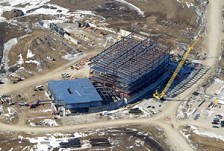Weak economy provides opportunities for Aviva

.floatimg-left-hort { float:left; } .floatimg-left-caption-hort { float:left; margin-bottom:10px; width:300px; margin-right:10px; clear:left;} .floatimg-left-vert { float:left; margin-top:10px; margin-right:15px; width:200px;} .floatimg-left-caption-vert { float:left; margin-right:10px; margin-bottom:10px; font-size: 12px; width:200px;} .floatimg-right-hort { float:right; margin-top:10px; margin-left:10px; margin-bottom:10px; width: 300px;} .floatimg-right-caption-hort { float:left; margin-right:10px; margin-bottom:10px; width: 300px; font-size: 12px; } .floatimg-right-vert { float:right; margin-top:10px; margin-left:10px; margin-bottom:10px; width: 200px;} .floatimg-right-caption-vert { float:left; margin-right:10px; margin-bottom:10px; width: 200px; font-size: 12px; } .floatimgright-sidebar { float:right; margin-top:10px; margin-left:10px; margin-bottom:10px; width: 200px; border-top-style: double; border-top-color: black; border-bottom-style: double; border-bottom-color: black;} .floatimgright-sidebar p { line-height: 115%; text-indent: 10px; } .floatimgright-sidebar h4 { font-variant:small-caps; } .pullquote { float:right; margin-top:10px; margin-left:10px; margin-bottom:10px; width: 150px; background: url(http://www.dmbusinessdaily.com/DAILY/editorial/extras/closequote.gif) no-repeat bottom right !important ; line-height: 150%; font-size: 125%; border-top: 1px solid; border-bottom: 1px solid;} .floatvidleft { float:left; margin-bottom:10px; width:325px; margin-right:10px; clear:left;} .floatvidright { float:right; margin-bottom:10px; width:325px; margin-right:10px; clear:left;}
In a tumultuous year when the values of most investors’ portfolios took a double-digit plunge, Aviva USA annuity policyholders were effectively sheltered from any losses in 2008.
Consumers’ demands for fixed indexed annuities helped drive a 47 percent increase in the company’s sales last year, said Chris Littlefield, chief operating officer for Des Moines-based Aviva USA.
“We’re getting incredible letters from consumers (not with Aviva) right now, because many of them are getting account statements showing they’ve lost 40 or 50 percent in the past year, where our consumers haven’t lost a penny on their annuity contracts due to market movements, ” he said. “I think there’s a real opportunity here because of the changing desires of our customers.”
A subsidiary of London-based Aviva plc, one of the world’s oldest and largest insurance companies, Aviva USA was formed in 2006 through Aviva’s acquisition of AmerUs Group Co. of Des Moines. Last spring, the company broke ground for a 360,000-square-foot headquarters complex in West Des Moines that is scheduled to be completed in June 2010.
Rapid growth
At the time of the acquisition, Aviva set a goal to double sales of its annuity and insurance products in the United States within three years. The company announced in December that it had reached that goal in just two years.
“We’ve focused a lot on growth, trying to grow our footprint in the U.S. market,” Littlefield said. “We want to be a long-term player and a big player in the U.S. market. We think given the current circumstances we have a great opportunity to do so. We just think we’re very, very well positioned.”
Indexed annuities offer minimum guaranteed values and credit interest based on the performance of a market index; Aviva USA’s annuities are primarily tied to the Standard & Poor’s 500. The trade-off is that the products offer limited upside potential for earnings in good times, and can subject policyholders to significant penalties for early withdrawals.
According to data provided by AnnuitySpecs.com, Aviva USA reported $7.1 billion in indexed annuity sales in 2008, a 63 percent increase over 2007. Its closest competitor, Allianz Insurance Group, reported $4.2 billion in indexed annuity sales last year.
Aviva USA’s market share has increased to 26.5 percent of the U.S. indexed annuity market, or more than one out of every four indexed annuity policies sold, said Sheryl Moore, principal of Advantage Group Associates Inc., the Pleasant Hill-based market research firm that operates AnnuitySpecs.com. “I have no reason to think that trend isn’t going to continue,” she said.
At a time when many insurers’ financial ratings have been downgraded, Aviva’s financial strength ratings were affirmed last year by both A.M. Best Co. and Moody’s Corp.
“These rating actions reflect A.M. Best’s view that Aviva USA is strategically important to Aviva and a significant contributor to the overall revenue and earnings of the enterprise,” A.M. Best wrote in its September 2008 rating upgrade.
Littlefield noted that Aviva hasn’t requested any government financial assistance and that the global company holds a very strong surplus position.
“So we’re very well positioned to weather this storm and to really identify some opportunities for Aviva as we come out the other end,” he said.
To accommodate its rapid growth over the past two years, Aviva USA has added more than 630 jobs, including 470 positions created in its Des Moines offices, which are currently spread out in leased space in several downtown buildings. Out of a little more than 1,500 U.S. employees, more than 1,000 are located in Des Moines.
Outside of Des Moines, one of the company’s largest operations is in Topeka, Kan., with an annuity office that employs about 220 people. It also has offices in New York City, Woodbury, N.J., and Chicago. Its parent division, Aviva North America, headed by former AmerUs CEO Tom Godlasky, has about 35 employees in downtown Chicago who oversee Aviva’s overall operations for the United States and Canada. A separate division formed last fall, Aviva Investors, provides all asset management for Aviva USA and is branching out to offer asset management services to other companies.
“As we look into 2009, our growth probably won’t proceed as rapidly,” Littlefield said. “These are difficult times, and everyone is focused on making sure we come out of the economic storm as strong as we possibly can. But we’re still planning on adding almost 100 positions in 2009 across a number of different functions, (among them) sales, finance, operations and information technology.”
Because its new building was designed to accommodate up to 1,500 employees, Aviva USA expects to have plenty of room without further expansion of its facilities in the near term, he said.
Ready to climb
The quality of Aviva USA’s employees has been a key for the company’s rapid growth over the past two years, and Aviva has invested significantly in them, Littlefield said.
For example, Aviva USA sent 100 of its employees to London last summer for an intense four-day training seminar with Paul Stoltz, an expert on organizational resilience and the author who devised the “Adversity Quotient.”
Stoltz’s philosophy, which uses mountain-climbing analogies and terminology, “is really about adversity,” Littlefield said. “How it makes you focus on the things that matter most, and that you don’t camp out. Instead, you’re climbing through (adversity).”
Designated as “climbing coaches,” those 100 employees were chosen from within each department at all levels of the organization, Littlefield said.
“The coaches have done a great job of continuing to get people engaged and excited with the ‘One Aviva, Twice the Value’ proposition that (Aviva plc Group Chief Executive) Andrew Moss has set for the global organization: identifying ways to really center on the customer and employee engagement.”
The approach has resulted in employee engagement that’s “through the roof,” Littlefield said. According to recent results from its annual employee engagement suvey, 93 percent of Aviva USA employees said they are “personally committed to achieving the goals of Aviva USA,” and 90 percent said they are “proud to be a part of Aviva USA.”
A bit of adversity that Aviva and other U.S. annuity issuers face is a new U.S. Securities and Exchange Commission rule that will will classify indexed annuities as securities rather than insurance products. Aviva products are primarily sold through independent insurance agents, many of whom are not licensed to sell securities.
“When the SEC announced Rule 151A in June, we made a decision that we were going to prepare and that we weren’t going to wait for the final outcome,” Littlefield said. “We’ve got very robust plans in place (covering aspects ranging from distribution, product design and agent licensing) that we’ll execute so that we’ll be ready no matter what happens. We will offer indexed products regardless of the outcome of 151A, whether it remains a fixed product or whether it becomes a registered product.”
Sources within the industry indicate that Aviva USA recently reduced the commissions that it pays to the independent agents who sell its products, and that it has significantly reduced the number of agents it works with, which could reduce its competitiveness in selling those products.
Littlefield said the reductions were tied to current economic conditions.
“Like many insurers, Aviva USA has made tough business decisions to ensure we stay strong and preserve capital during a time when capital is scarce,” he said. “After carefully reviewing our company operations to ensure maximum efficiency, we decided further changes were necessary. Therefore, we slightly reduced commissions.”
More guarantees
Aviva USA will continue to develop new insurance products, particularly ones that offer customers more flexibility and control, Littlefield said.
“We’ve always been on the forefront of innovation, whether it’s with indexed annuity products or indexed universal life insurance products,” he said. “I think what you’ll see us do over time is to continue to focus on our higher-margin products in the life insurance space.
“We’ll continue to be an innovator in the annuity space, but most of our innovation has been in the benefits. … One thing that’s really driven our growth over the last two years has been the income features we’ve added to our annuity products that give our customers more control over being able to access their money.
“Also, I think you’ll see Aviva and others look for ways to offer guarantees in products other than just your typical annuity and insurance products, whether that’s offering guarantees through mutual funds or mutual fund families or other avenues to satisfy the growing demand for guarantees.”
Despite receiving “fairly frequent calls about (acquisition) opportunities,” Littlefield said Aviva isn’t considering acquiring other insurers in the short term.
“We currently don’t believe now is the time to leap into those acquisition opportunities,” he said.
“We are looking at primarily organic growth for now, but we will regularly look at acquisition opportunities. There needs to be some clarity on where the bottom is before people start jumping in.”







